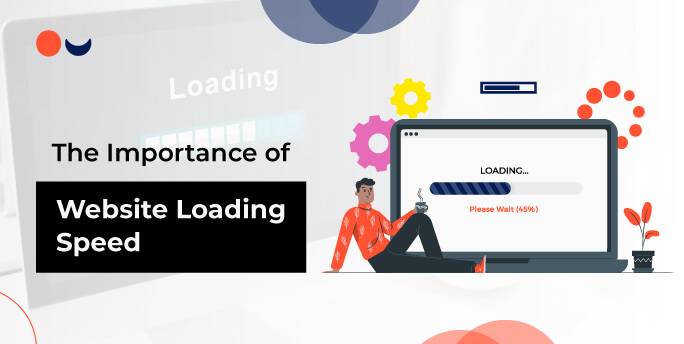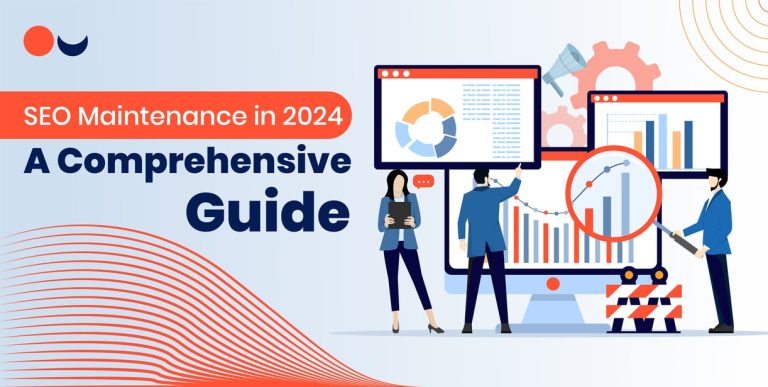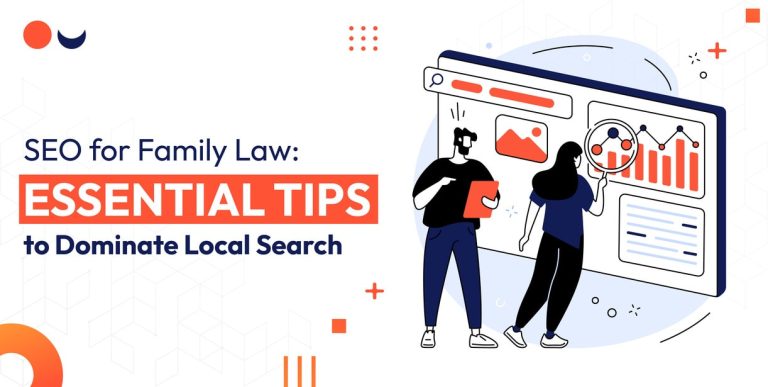A website that loads quickly is critical for online success in today’s fast-paced digital environment. The time it takes for a web page to fully show its content once a user clicks on a link or inputs a URL is referred to as website loading speed. This seemingly insignificant feature of website design enormously affects user experience, search engine rankings, and overall company success.
This blog will examine why website loading speed is essential, how it might affect your website’s performance, and why you should assess your website rate to ensure the best outcomes.
Why Does Website Loading Speed Matter?
1. Enhanced User Experience:
When visitors visit a website, they want it to load quickly and deliver the information they want without delays. Slow-loading websites can cause annoyance and a poor user experience. According to research, if a website takes too long to load, people are likelier to abandon it, raising the bounce rate and decreasing the time spent on the site. On the other hand, a fast-loading website makes an excellent first impression, increases user happiness, encourages visitors to remain longer, explore more pages, and potentially convert into customers.
2. SEO and Search Engine Rankings:
The speed with which a website loads is essential in search engine optimization (SEO). Page speed is one of the ranking variables used by search engines such as Google. Websites that load quickly are more likely to rank higher in search engine results, increasing visibility and organic traffic. On the other hand, slow-loading websites may be penalized in search rankings, which can substantially impact their online exposure and organic visitors. As a result, optimizing your website’s loading speed can lead to improved SEO performance and a greater possibility of reaching your target audience.
3. Mobile User Experience:
With the increased use of mobile devices, having a quick-loading website becomes even more critical. Mobile users frequently need more bandwidth and better internet connections than desktop users. A slow-loading website on mobile devices can be aggravating and increase bounce rates. Mobile friendliness and fast loading speed are critical components in establishing a pleasant mobile user experience and ensuring your website is accessible and exciting for users on various devices.
4. Conversion Rates and Revenue:
Your website’s loading speed directly impacts conversion rates and, eventually, revenue. According to research, even little improvements in website loading time can significantly boost conversion rates. Faster loading speeds result in a more pleasant user experience, better navigation, and faster access to product or service information, all of which lead to a higher conversion rate of visitors to consumers. A website that loads quickly can enhance client trust and encourage more frequent transactions, increasing overall income.
The Importance of Testing Website Speed:
To understand the performance of your website and identify areas for improvement, it is crucial to test its loading speed regularly. Here’s why test website speed is essential:
1. Identify Performance Bottlenecks:
Website speed testing tools can assist in identifying individual sections or pages that may be causing delayed loading times. Testing allows you to effectively discover and address performance bottlenecks, whether huge picture files, numerous scripts, or server-related difficulties.
2. Benchmark Performance:
Testing website speed gives a benchmark for comparing the loading speed of your website to industry standards or competitors. This comparison helps you set achievable targets for improving loading times and remaining competitive in your market.
3. Improve User Experience:
You can improve user experience by knowing your website’s loading speed. User satisfaction, engagement, and retention increase with faster loading times.
4. SEO Performance:
Website speed testing is critical in SEO. Faster-loading websites receive higher ranks from search engines. You may boost your search engine results and organic traffic by regularly testing your website’s speed and making necessary modifications.
Improve your website speed.
Here are some general suggestions for increasing the speed of your website. Implementing the following recommendations will assist in optimizing your website’s performance and improve the user experience:
1. Image Optimisation: Compress and resize images without compromising quality. Large image files can significantly slow page loading times.
2. Enable Browser Caching: Enable browser caching on your website to save specific items locally in a user’s browser. This avoids downloading the same resources and continually speeds up subsequent visits.
3. Reduce HTTP Requests: Reduce the number of items on each page, such as images, scripts, and CSS files, to reduce the number of HTTP requests required to load the page.
4. Use a Content Delivery Network (CDN): A CDN distributes your website’s static resources across numerous servers worldwide. This minimizes server load and improves load times for consumers across the globe.
5. Enable Gzip Compression: Enable Gzip compression on your server to compress your website’s files before sending them to the user’s browser.
Remember to test your website speed regularly with tools such as Google PageSpeed Insights or GTmetrix to identify areas for improvement. By applying these tactics, you can improve the loading speed of your website and deliver a better user experience.
Conclusion
The importance of speed with which a website loads substantially impacts the user experience, search engine rankings, and commercial outcomes. A fast-loading website improves customer satisfaction, SEO performance, conversion rates, and revenue.
Testing your website speed regularly enables you to spot performance issues, assess your site’s performance, and make necessary modifications. Prioritizing website loading speed is critical for competitiveness in the digital market and for creating a great visitor and customer experience.







